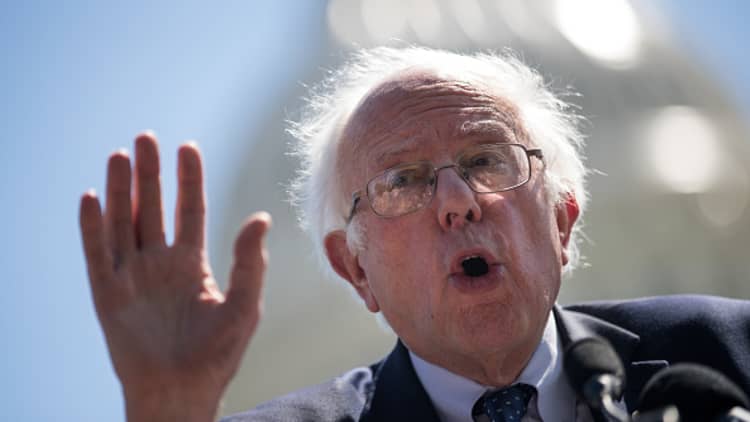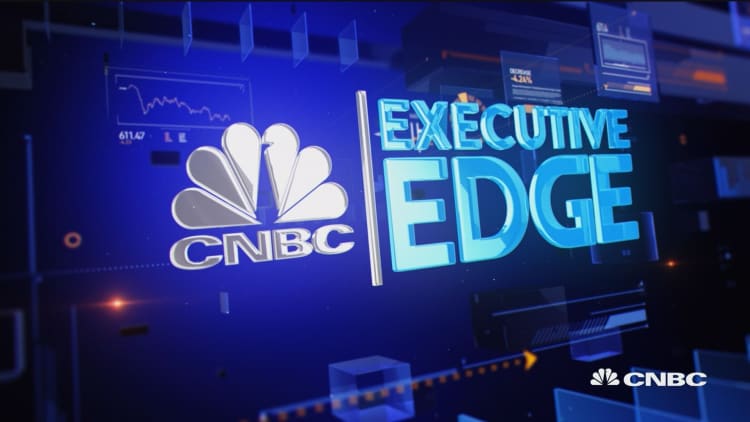House Democrats took a key step Wednesday toward more than doubling the federal minimum wage.
The House Committee on Education and Labor advanced a bill to raise the U.S. wage floor to $15 per hour by 2024. It cleared the panel in a 28-20 party-line vote.
House Speaker Nancy Pelosi supports the legislation and plans to bring it to an eventual vote in the full Democratic-held chamber. If the House passes the bill, it would mark the most significant step toward raising the federal minimum wage since 2009, the last time the pay floor increased. The U.S. currently has a $7.25 minimum wage.
The legislation has only a slim chance of becoming law. Republicans in the GOP-held Senate — like their colleagues in the House — will likely oppose it. The White House has also trashed the idea of hiking the federal wage floor, though President Donald Trump has not weighed in recently himself.

Democrats see the measure as a way to cast themselves as the better party for working Americans ahead of key 2020 presidential and congressional elections. They have cast Republicans as out of touch — particularly through criticizing the GOP tax cuts for corporations and wealthy Americans.
Democrats say the legislation would give nearly 40 million American workers a raise. They argue the increase will help laborers better keep up with rising costs of living, and boost the economy by giving those workers more money to spend. Under the bill, the pay floor would rise to $15 per hour in 2024 and would continue to climb in line with median wage growth.
"We now have an opportunity – and a responsibility – to restore the value of the minimum wage, lift millions of hardworking people out of poverty, and boost the economy in Main Street America," Rep. Bobby Scott, a Virginia Democrat and chairman of the Education and Labor Committee, said in opening a bill markup hearing Wednesday.
Republicans have argued the plan would hurt small-business owners by increasing costs. It would force them to cut positions and hours for low-wage workers and potentially increase automation, critics contend.
The U.S. Chamber of Commerce, the most powerful business organization in the nation, has also lined up against the legislation.
"Going from a $7.25 an hour federal minimum wage to a $15 an hour minimum wage is, at best, a foolish policy proposal," committee ranking member Rep. Virginia Foxx, R-N.C., said Wednesday. "At worst, it's an intentionally dishonest political stunt that promises bigger paychecks to hardworking Americans when in reality it would result in significant job losses for millions of hourly workers around the country."
The debate over a $15 per hour federal minimum wage comes as states and cities around the country have increasingly embraced the wage floor. Organizations such as Fight for $15 have pushed governments around the country to hike their minimum wages.
In a statement distributed by Fight for $15, Bobby Fields, a McDonald's worker in Florida, said members of the organization moved "one step closer" to their goal on Wednesday. "We're going to keep on fighting and keep on going on strike until all workers get the $15 minimum wage and a union we need," he said.
Last month, New Jersey and Illinois became the fourth and fifth states to pass $15 per hour minimum wages. Twenty-nine states currently have higher minimum wages than the federal level, according to the National Conference of State Legislatures.
Some critics of a federal minimum wage hike have argued states should decide appropriate pay floors based on cost of living. In October, White House chief economic advisor Larry Kudlow called a U.S. wage hike a "terrible idea," arguing that "Idaho is different than New York."



